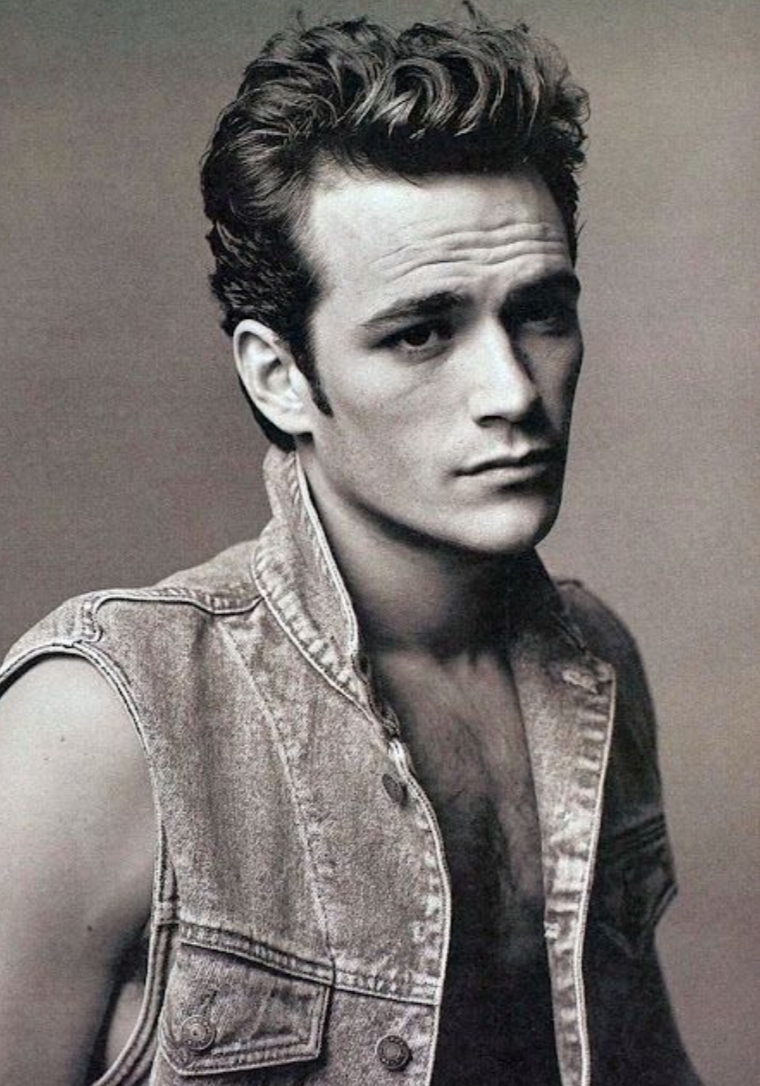It was roughly around the time of 1995 (also, incidentally, the same year Luke Perry left Beverly Hills 90210 to pursue “other projects”) that the heteronormative idea of what a bad boy/beacon of cool with a mysterious air was altered with the seemingly “marginal” silver screen appearance of Christian Stovitz (Justin Walker) in Clueless. Though at first presented as the proverbially arcane rebel with little to note in the way of much publicly known personal information (the only “411” Cher [Alicia Silverstone] has on the situation is that Christian’s parents are divorced, so he spends half the year in Chicago and the other in L.A.), it gradually becomes obvious to everyone except Cher that Christian is a “cake boy.” And so it was that the illusion of the “bad boy” trope being strictly heterosexual was shattered, the glass ceiling only to further break in the late 90s and 00s as shows like Dawson’s Creek (with Jack McPhee [Kerr Smith] as another example of a “mysterious” iconoclast, the quotes in mysterious not inferring rebellion but gaydom) persisted in breaking the mold of garden variety leather jacket wearer.
Dylan McKay was, thusly, the last 90s vestige of this formerly strictly hetero prototype. As the requisite bad boy of any Aaron Spelling vehicle (in addition to establishing the same precedent for subsequent WB-cum-CW dramas), Dylan hit all the classic notes of what it meant to be “no good”: rich kid, strained relationship with father, loner, chip on shoulder, misunderstood, smolderingly attractive and, lastly but most importantly (at least for actor portrayal purposes), monosyllabic…that is, should he decide to talk at all. This, of course, made him good girl kryptonite, particularly to the likes of Brenda Walsh (Shannen Doherty) and Kelly Taylor (Jennie Garth), with the latter (mainly, let’s face it, because of her blondeness) triumphing in the end over Dylan’s heart. Ostensibly made of stone at the outset of Beverly Hills 90210.
It is his inner “teddy bear” (as is also a required quality of any bad boy) that finds him coming to the rescue of Scott Scanlon (Douglas Emerson), the dweebo friend of David Silver (Brian Austin Green), as he is being beaten up by a group of upperclassmen. This act warms Brandon Walsh (Jason Priestly) to him. And as the ringleader of the 90210 crew, Dylan finds his “loner, Dotty, rebel” reputation melting away as the gateway to mass group friendship is opened. Endeared to Kelly, Brenda, Donna Martin (Tori Spelling), Steve Sanders (Ian Zeiring), Andrea Zuckerman (Gabrielle Carteris) and, eventually, David (who is quick to ditch Scott in order to devote all his attention to “the gang”), Dylan is just as much a part of their nonstop rotating barrage of melodramas as anyone else. In fact, he is one of the key contributors. Not that he can necessarily help it all the time, what with his morally lax patriarch, Jack McKay (Josh Taylor), getting into bed with the mob (does L.A. really even have one outside of the film industry itself?).
It is, indeed, primarily this dynamic with Jack that pushes and pulls him to both Brenda and Kelly at different points in the series, leading him to choose Kelly when Brenda physically can’t make it to meet him as his father is being released from prison (heavy, Shakespearean-level shit, to be sure) and the former does. Like another wealthy and “complicated” dad, Bart Bass (Robert John Burke) on Gossip Girl, Jack’s shocking (yet, also, like Bart’s, ultimately faked) death sends Dylan down a path of self-destruction that every true heteronormative bad boy must embark upon during the road to redemption. Then again, McKay might have been the last to really do that per the aforementioned ’95 cutoff for the hetero bad boy trope (with James Hurley [James Marshall] on Twin Peaks and Jordan Catalano [Jared Leto] on My-So Called Life also serving as final examples).
That the original paradigm for the bad boy–James Dean (who Luke Perry was often likened to at the peak of his fame in the early 90s)–himself was gay perhaps speaks volumes on how much the archetype has evolved to the point of ironic full-circledom in the twenty-first century. And that underneath every “raging against it all man” is a sensitive little boy that just needs the right girl (or now, any gender in between) to nurture the innocent/gentle soul within. It was this rare acting ability (paired, of course, with matinee idol looks, or what Janis Ian would call a “hot” body) that made Luke Perry the perfect person to play Dylan McKay, and any other assorted 90s bad boys that his agent might toss his way (including his role as Pike in 1992’s Buffy the Vampire Slayer). The last of a now dead (in more ways than one) breed.
Side note: Daniel Desario (James Franco) doesn’t count as a post-90210 bad boy as Freaks and Geeks was set in 1980.






















